Abstract
Latest developments in the field of stem cell research and regenerative medicine compiled from publicly available information and press releases from non-academic institutions in April 2024.
Keywords: :
1. Business development
1.1. Collaboration & licencing agreement: Vertex & TreeFrog
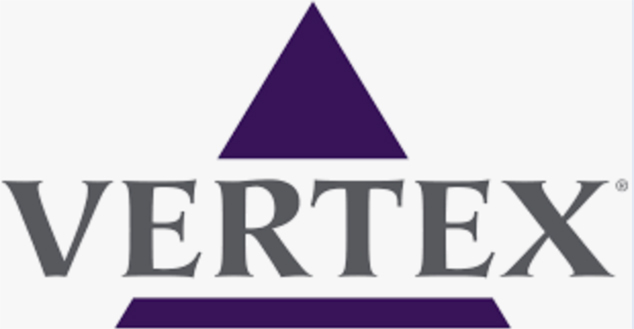

Vertex Pharmaceuticals (MA, USA: www.vrtx.com) and TreeFrog Therapeutics (France; https://treefrog.fr) have announced that Vertex has obtained an exclusive license to TreeFrog's proprietary cell manufacturing technology, C-Stem™, to optimize production of Vertex's cell therapies for Type I diabetes (T1D) [Citation1]. TreeFrog and Vertex will collaborate to scale-up TreeFrog's process to produce and amplify cells for Vertex's T1D therapies.
TreeFrog's proprietary technology platform, C-Stem, is designed to mimic the natural microenvironment, allowing cells to grow exponentially in 3D. The technology will enhance Vertex's ability to generate large amounts of fully differentiated cells for its portfolio of T1D cell therapies.
Under the agreement, TreeFrog will receive a US$25M upfront payment, an equity investment from Vertex and up to US$215M in milestones paid in connection with the development of a scaled-up process for fully differentiated islet cells. TreeFrog is also eligible to receive an additional US$540M in clinical, regulatory and commercial milestones on up to two future products and tiered single digit royalties. Vertex will fund all research and development costs related to the collaboration. Vertex will be responsible for all development and commercialization of its cell therapies.
1.2. Manufacturing agreement: Bristol Myers Squibb & Cellares


Bristol Myers Squibb (NJ, USA; www.bms.com) and Cellares (CA, USA; www.cellares.com), the first Integrated Development and Manufacturing Organization (IDMO) dedicated to clinical and industrial-scale cell therapy manufacturing, have announced a worldwide capacity reservation and supply agreement for the manufacture of Chimeric Antigen Receptor (CAR) T cell therapies in a transaction valued up to US$380M in upfront and milestone payments [Citation2]. As part of the agreement, Cellares will optimize, automate and tech-transfer select Bristol Myers Squibb CAR T cell therapies onto its automated and high-throughput manufacturing platform, the Cell Shuttle™. Cellares will dedicate multiple Cell Shuttle and Cell Q™ systems with fully automated, high-throughput quality control for Bristol Myers Squibb's exclusive use. The Cell Shuttles and Cell Qs will be deployed in Cellares’ Smart Factories in the US, EU and Japan.
1.3. Manufacturing agreement: Ferring & SK pharmteco
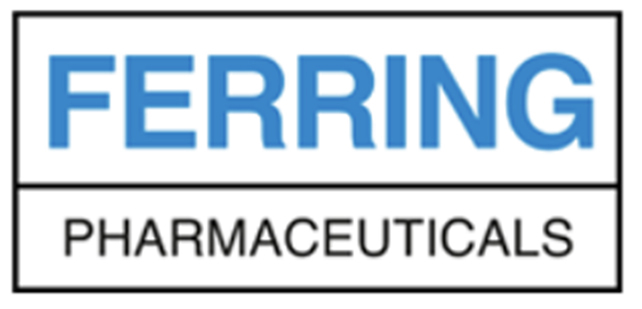
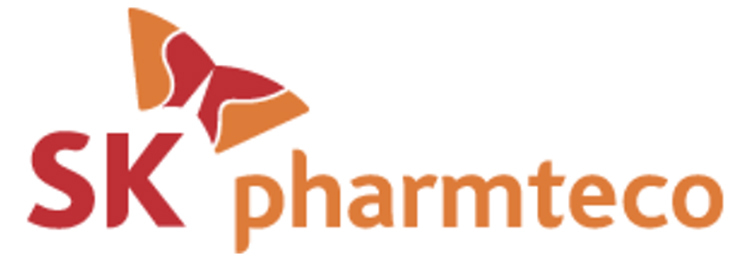
Ferring Pharmaceuticals (Switzerland; www.ferring.com) and SK pharmteco (CA, USA; www.skpharmteco.com) have announced an agreement to scale up commercial manufacturing capacity for the drug substance of Ferring's intravesical gene therapy Adstiladrin® (nadofaragene firadenovec-vncg) for ensuring long-term future supply [Citation3]. Following technology transfer, SK pharmteco, a contract development manufacturing organisation (CDMO), will be qualified as another source for manufacturing, testing and release of the medicine, subject to regulatory approval by the US FDA.
Adstiladrin is a non-replicating adenovirus vector-based gene therapy containing the gene encoding interferon alfa-2b protein, administered by catheter into the bladder once every 3 months. The vector enters the cells of the bladder wall, releasing the interferon gene. The internal cell machinery translates the interferon DNA sequence, resulting in the cells secreting high quantities of interferon alfa-2b protein, a recombinant analog of the naturally occurring protein the body uses to fight cancer. This novel gene therapy approach thereby turns the patient's own bladder wall cells into interferon microfactories, enhancing the body's natural defenses against the cancer. Nadofaragene firadenovec-vncg has been studied in a clinical trial program that includes 157 patients with high-grade, Bacillus Calmette-Guérin (BCG)-unresponsive non-muscle invasive bladder cancer who had been treated with adequate BCG previously and did not see benefit from additional BCG treatment [Citation4].
1.4. Partnership agreement: Kincell & Imugene


Imugene (Australia; www.imugene.com) and Kincell Bio (FL, USA; https://kincellbio.com), have announced a strategic manufacturing and process development partnership, which includes the sale of Imugene's North Carolina cGMP manufacturing facility and the transfer of process and analytical development activities to Kincell [Citation5].
Under the terms of an asset purchase agreement between Imugene and Kincell, Kincell will acquire Imugene's CGMP compliant cell therapy manufacturing facility in North Carolina for a total consideration of up to US$6M in upfront and milestone-driven payments. Both parties have entered into a manufacturing supply agreement whereby Kincell will manufacture Imugene's Azer-cel to support ongoing clinical trials. Imugene will also transfer process and analytical development of Azer-cel to Kincell in order to support process and method optimization for commercial readiness.
1.5. Partnership agreement: Shinobi & Panasonic


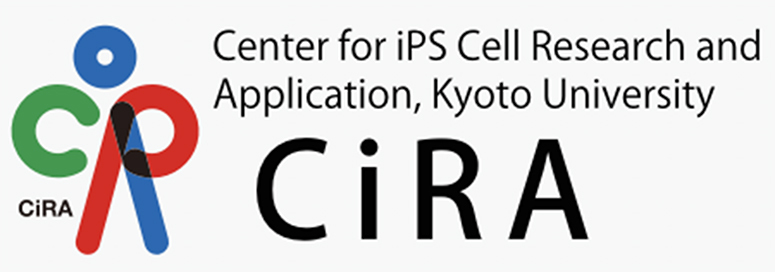
Shinobi Therapeutics (CA, USA; www.shinobitx.com), a biotechnology company developing a new class of immune evasive induced pluripotent stem cell (iPSC) therapies, has announced a partnership with Panasonic Holdings (Japan; https://holdings.panasonic/global/) and Kyoto University's Center for iPS Cell Research and Application (CiRA; Japan; www.cira.kyoto-u.ac.jp/e/) [Citation6]. Through this strategic collaboration, the organizations aim to engineer a novel manufacturing platform to produce iPSC-derived T cell therapies more efficiently and at lower cost than is possible with currently available technology. The newly announced partnership will leverage Panasonic's manufacturing expertise to develop a new method of producing iPSC-derived T cell therapies in a closed-system process.
2. Achievements, launches…
2.1. Cellares

Cellares (CA, USA; www.cellares.com), the first IDMO dedicated to clinical and industrial-scale cell therapy manufacturing, has unveiled Cell Q™, the first automated quality control (QC) workcell for cell therapy manufacturing [Citation7]. Cell Q addresses a critical challenge: the manual, labor-intensive, low-throughput and expensive nature of cell therapy QC. Exclusive to Cellares’ industry-first IDMO Smart Factories, Cell Q™ will offer a substantial improvement in throughput, cost and reproducibility compared with existing manual QC methods.
As Cellares Cell Shuttles have addressed upstream bottlenecks in cell therapy manufacturing, Cell Q resolves the downstream QC capacity challenges. Cell Q is engineered to automate the vast majority of cell therapy QC assays for up to 6000 batches per year. To accelerate analytical method transfer and shorten the time to clinical readout for new IDMO clients, Cell Q includes a pre-qualified set of the most common assays. Additionally, each Cell Q utilizes a modular platform that can be expanded with new instruments providing the flexibility needed to meet varying IDMO client needs.
2.2. Profluent

Profluent (CA, USA; www.profluent.bio), the AI-first protein design company, has debuted the OpenCRISPR™ initiative, releasing the world's first open-source, AI-generated gene editor [Citation8]. With this launch, Profluent demonstrates the first successful precision editing of the human genome with customizable gene editors designed from scratch with AI.
OpenCRISPR-1 is an AI-created gene editor, consisting of a Cas9-like protein and guide RNA, fully developed using Profluent's large language models (LLMs). Through the training process for OpenCRISPR, the company's AI learned from massive scale sequence and biological context to generate millions of diverse CRISPR-like proteins that do not occur in nature, thereby exponentially expanding virtually all known CRISPR families.
In its commitment to democratizing the technology, Profluent has launched OpenCRISPR-1 as an initial open-source release, making the AI-designed gene editor freely available to license for ethical research and commercial uses.
2.3. Thermo Fisher

Thermo Fisher Scientific (MA, USA; www.thermofisher.com), has introduced the Gibco™ CTS™ OpTmizer™ One Serum-Free Medium (CTS OpTmizer One SFM), a novel animal origin-free formulation designed specifically for clinical and commercial cell therapy manufacturing to deliver increased scalability and performance of T cell expansion [Citation9]. As a result, cell therapy manufacturers can use CTS OpTmizer One SFM to help optimize their workflows and get T cell therapies to patients faster. Available as a catalog product in 1 L bottles and 1 L, 5 L and 10 L bioprocess containers, CTS OpTmizer One SFM is compatible with closed automated instruments such as the Gibco™ CTS™ DynaCellect™ Magnetic Separation System and the Gibco™ CTS™ Rotea Counterflow Centrifugation System.
2.4. Walgreens

Walgreens (IL, USA; www.walgreens.com) has introduced Walgreens Specialty Pharmacy, a holistic offering that expands access to care for patients with complex, chronic conditions and enables partnerships that drive profitability for Walgreens’ pharmacy business [Citation10]. The company is also making investments that will transform its specialty pharmacy offerings, including gene and cell therapy services. Gene and Cell Services Pharmacy and Innovation Center will be a dedicated 18,000-square-foot center in Pittsburgh, PA, USA, with services and capabilities for these emerging therapies, including innovative solutions for managing the complexity of the supply chain, logistics and financing as well as clinical and social needs management to ensure success for patients and partners.
3. Clinical trials
3.1. Pluripotent stem cells
3.1.1. Aspen Neurosciences
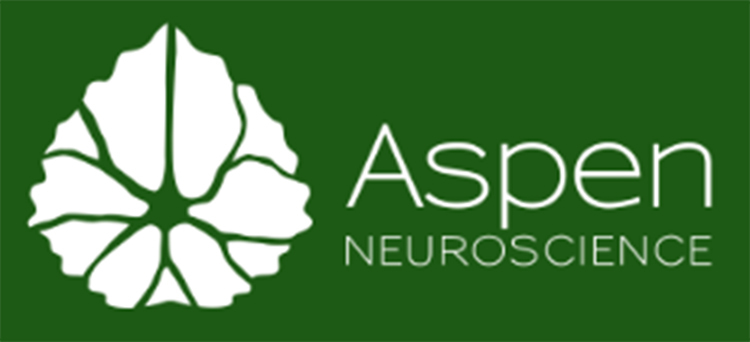
Aspen Neuroscience (CA, USA; https://aspenneuroscience.com), a private biotechnology company developing personalized regenerative therapies, has announced that the first patient has been dosed in the ASPIRO trial, a Phase I/IIa open label clinical trial to assess safety and tolerability of ANPD001, an autologous, dopaminergic neuron cell replacement therapy for participants with moderate to severe Parkinson's disease [Citation11,Citation12]. ANPD001 is an investigational autologous neuronal replacement therapy being studied as a regenerative therapy for Parkinson's disease. Aspen's personalized approach means that patients do not require immunosuppressive drugs to counteract the body's immune response against foreign tissue.
Aspen's manufacturing process starts from a small sample of the patient's own skin cells, followed by reprogramming to iPSCs and then differentiation of the iPSCs into dopaminergic neuron precursors (DANPCs). These DANPCs are transplanted into the putamen, replacing cells that were lost or damaged due to disease. The quality of each person's cells is assessed at every manufacturing stage using Aspen's proprietary machine learning-based genomics tests.
3.2. Immune cells
3.2.1. Artiva
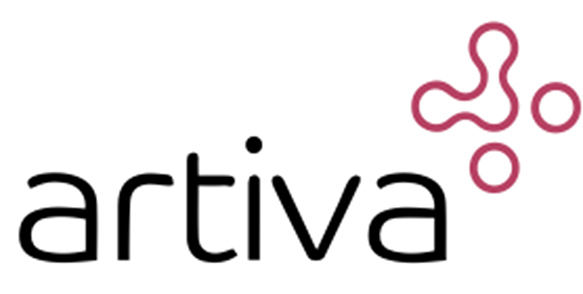
Artiva Biotherapeutics (CA, USA; www.artivabio.com), a clinical-stage company whose mission is to deliver highly effective, off-the-shelf, allogeneic natural killer (NK) cell-based therapies, announced that the first patient has been dosed in its Phase I trial of AlloNK® (also known as AB-101) in combination with monoclonal antibodies for the treatment of lupus nephritis [Citation13,Citation14]. AlloNK is a non-genetically modified, allogeneic, cryopreserved NK cell therapy candidate being developed to enhance the activity of B-cell targeting monoclonal antibodies to drive B-cell depletion.
3.3. Other
3.3.1. Aurion

Aurion Biotech, whose mission is to restore vision to millions of patients with life-changing regenerative therapies, has completed dosing of all subjects in its Phase I/2 clinical trial (CLARA) of AURN001, an allogeneic cell therapy for the treatment of corneal edema secondary to corneal endothelial dysfunction [Citation15,Citation16].
AURN001 is a combination cell therapy product (biologic/drug) comprised of neltependocel (allogeneic human corneal endothelial cells [CECs]) and Y-27632 (an inhibitor of Rho-associated, coiled-coil containing protein kinase [ROCK]). AURN001 is intended to be administered to the eye as a one-time, intracameral injection.
The CLARA Phase I/II clinical trial is a prospective, multi-center, randomized, double masked, parallel-arm cell dose-ranging clinical trial in subjects with corneal edema secondary to corneal endothelial dysfunction. The study will evaluate three different doses of neltependocel used in combination with Y-27632. 97 subjects have been randomized at US and Canadian sites. The CLARA trial is designed to assess the safety, tolerability and efficacy of AURN001 for the treatment of corneal edema secondary to corneal endothelial dysfunction. The primary end point is the percentage of subjects who gain three lines of vision at 6 months. Drug product for the CLARA trial was supplied by Aurion's CDMO partner, Charles River Laboratories (MA, USA; www.criver.com) from their production site in Memphis, TN, USA.
3.3.2. LyGenesis
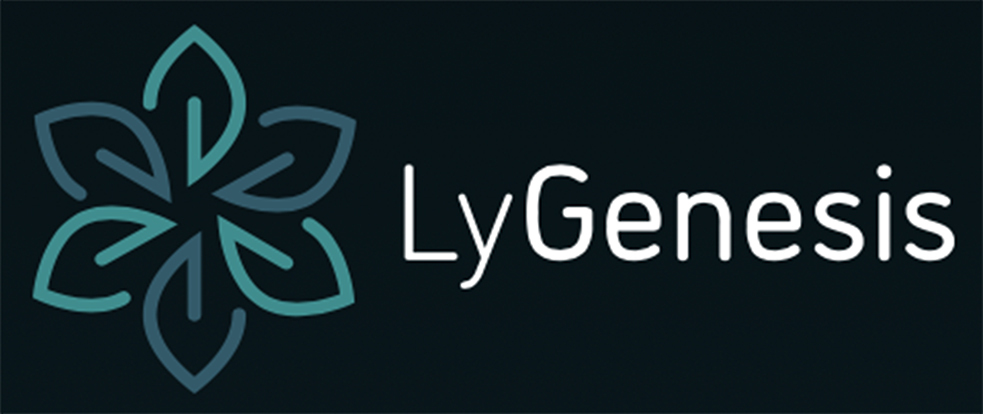
LyGenesis (PA, USA; www.lygenesis.com), a clinical-stage biotechnology company developing cell therapies for large unmet medical needs, has announced that the first patient has been dosed in their Phase IIa clinical trial evaluating their first-in-class allogenic regenerative cell therapy transplanted into patients’ lymph nodes as a potential treatment for end-stage liver disease (ESLD) [Citation17–19].
LYG-LIV-001 is an allogeneic cell therapy regulated by the FDA as a Section 351 Human Cellular Therapy/Product and as an investigational biologic product. This biologic therapy is created starting from donated otherwise unmatched livers. A complex, multi-step Current Good Manufacturing Practices process carefully isolates and suspends hepatocytes in a solution to ready them for transplantation into that patient's upper abdominal lymph nodes using an endoscopic ultrasound, a minimally invasive approach. The lymph nodes then act as in vivo bioreactors, helping the hepatocytes to engraft, proliferate and generate functional ectopic liver tissue. LyGenesis’ cell therapies do not involve genetic engineering, which reduces the time, risks and costs associated with manufacturing and commercializing their therapies.
This open-label, dose-escalation, Phase IIa clinical trial is recruiting 12 patients with ESLD. Each patient receiving the cell therapy is closely monitored over 1-year through follow-up visits to examine safety, tolerability and efficacy of the transplanted allogeneic hepatocytes as they relate to the signs and symptoms of their ESLD. A data safety monitoring board monitors each cohort of patients (N = 4) to evaluate near-term safety prior to dose escalation for the next cohort of patients.
4. Regulations, approvals, acquisitions…
4.1. Green light
4.1.1. Autolus

Autolus Therapeutics (UK; www.autolus.com), a clinical-stage biopharmaceutical company developing next-generation programmed T cell therapies, has announced that the European Medicines Agency (EMA) has accepted the Company's Marketing Authorization Application for obecabtagene autoleucel (obe-cel) [Citation20]. Obe-cel is Autolus’ lead investigational CAR T cell therapy, for the treatment of patients with relapsed/refractory (r/r) adult B-cell acute lymphoblastic leukemia (ALL). The MAA submission was based on data from the pivotal Phase II FELIX study of obe-cel in adult r/r B-ALL [Citation21]. The MAA submission was based on data from the pivotal Phase II FELIX study of obe-cel in adult r/r B-ALL. The trial enrolled over 100 patients across 30 of the leading academic and non-academic centers in the USA, UK and Europe.
Autolus’ Nucleus site has recently received the formal certification from the MHRA (UK; www.gov.uk/government/organisations/medicines-and-healthcare-products-regulatory-agency) following a full inspection of the site in February 2024. The MHRA issued two new GMP certificates to cover both clinical and commercial manufacture from the site.
4.1.2. Bristol Myers Squibb

Bristol Myers Squibb (NJ, USA; www.bms.com) has announced that the US FDA has approved Abecma® (idecabtagene vicleucel; ide-cel) for the treatment of adult patients with relapsed or refractory multiple myeloma after two or more prior lines of therapy including an immunomodulatory agent, a proteasome inhibitor and an anti-CD38 monoclonal antibody [Citation22].
In unrelated press release Pomerantz LLP (NY, USA; www.pomlaw.com) announced that is investigating claims on behalf of investors of Bristol-Myers Squibb [Citation23]. The investigation concerns whether Bristol Myers and certain of its officers and/or directors have engaged in securities fraud or other unlawful business practices. On March 13, 2024, the US FDA posted briefing documents in advance of meeting of the Oncologic Drugs Advisory Committee, scheduled for 15 March 2024, regarding Bristol Myers's CAR-T cell therapy Abecma, noting that Abecma was linked to earlier deaths, citing late-stage clinical trial data submitted by Bristol Myers. On this news, Bristol Myers's stock price fell US$1.75 per share, or 3.22%, to close at US$52.65 per share on 13 March 2024.
4.1.3. IASO Bio
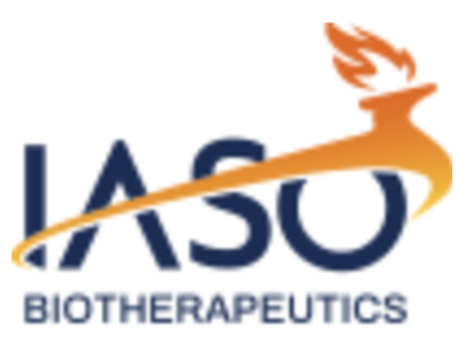
IASO Bio (China; www.iasobio.com), a biopharmaceutical company engaged in discovering, developing, manufacturing and marketing innovative cell therapies and antibody products, has announced that the Investigational New Drug (IND) application for its BCMA CAR-T (Equecabtagene Autoleucel, Eque-cel) has been approved by the US FDA for use in US clinical trials for generalized myasthenia gravis [Citation24]. The Chinese IND for this indication of Eque-cel was approved by the NMPA in January this year.
4.1.4. Ingenium

Ingenium Therapeutics (Korea; https://ingeniumcell.co.kr/en/), a company working on the next-generation NK cell therapies, has announced that its investigational therapy IGNK001 (Gengluecel) has been granted Orphan Drug Designation by the US FDA for the treatment of acute myeloid leukemia (AML) [Citation25].
Ingenium's proprietary technology enables the company to differentiate and proliferate natural killer (NK) cells with superior anti-cancer efficacy. By targeting CD3-negative immune cells, the company can acquire a large number of highly pure NK cells in a relatively short timeframe. This mass-produced, allogeneic NK cell therapy derived from healthy donors demonstrates potent anti-cancer effects with high purity and activity.
4.1.5. Kelyniam & Fin-ceramica

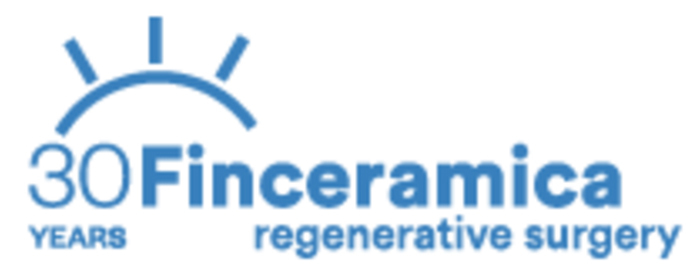
Kelyniam Global (CT, USA; https://kelyniam.com) and Finceramica (Italy; www.finceramica.it/en) makers of custom cranial implants, have announced that the NEOS Surgery Cranial LOOP™ fixation system has received 510(k) clearance from the FDA for use with Finceramica's CustomizedBone™ hydroxyapatite cranial implant [Citation27]. The Cranial LOOP family of cranial fixation devices is a smart system made of PEEK-OPTIMA™, a biocompatible polymer, for securely fixing bone flaps after craniotomies.
The NEOS Surgery Cranial LOOP system offers rapid implant fixation in under two minutes using just three devices. Crafted from poly ether ether ketone (PEEK), it ensures radiolucency for artifact-free computed tomography and magnetic resonance imaging during post-operative monitoring. Cost-wise, Carnial LOOP is comparable to traditional plate and screw systems. Kelyniam exclusively distributes CustomizedBone implants with the NEOS Cranial LOOP in the US.
4.1.6. Legend
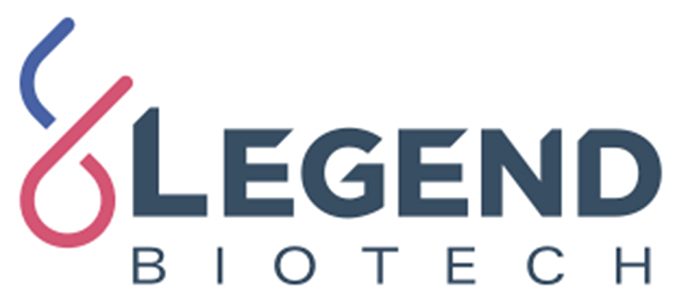
Legend Biotech (NJ, USA; https://legendbiotech.com), a-cell therapy company, has announced that both the US FDA and the European Commission recommended CARVYKTI® (ciltacabtagene autoleucel, cilta-cel) for the treatment of adult patients with relapsed or refractory multiple myeloma who have received at least one prior line of therapy including a proteasome inhibitor and an immunomodulatory agent, have demonstrated disease progression on the last therapy [Citation28,Citation29].
4.1.7. Replay & MD Anderson

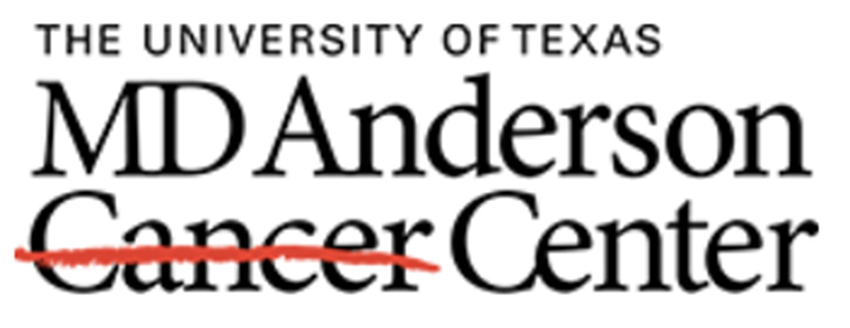
Replay (CA, USA; https://replay.bio), a genome writing company reprogramming biology by writing and delivering big DNA, and The University of Texas MD Anderson Cancer Center (TX, USA; www.mdanderson.org), have announced that the US FDA has issued a ‘safe to proceed’ for the IND application for PRAME TCR/IL-15 NK (SY-307), an engineered T-Cell Receptor Natural Killer (TCR-NK) cell therapy for relapsed/refractory myeloid malignancies [Citation30]. MD Anderson is the IND sponsor.
PRAME TCR/IL-15 NK (SY-307) is being developed by Syena (no website found), an oncology-focused product company launched by Replay and MD Anderson. Syena has an exclusive license to Miltenyi Biotec's PRAME (PReferentially expressed Antigen in MElanoma) T-cell receptor (TCR). The engineered PRAME-targeted TCR-NK cell therapy is developed from cord blood-derived NK cells that express a high affinity TCR targeting the PRAME tumor-associated neoantigen. PRAME is highly immunogenic and expressed on numerous different cancer types, including hematologic malignancies such as AML and myelodysplastic syndromes (MDS), and solid tumors such as melanoma, sarcoma and ovarian, endometrial, lung and breast cancer. The ability of PRAME to elicit humoral and cellular immune responses along with its restricted tissue expression, establishes it as a compelling target for cell therapy-mediated cancer immunotherapy.
The Phase I/II open-label study will assess the safety, tolerability and preliminary efficacy of PRAME TCR/IL-15 NK (SY-307) in patients with relapsed/refractory AML and MDS. It will be administered following lymphodepletion with standard doses of fludarabine/cyclophosphamide (Flu/Cy) and decitabine. Up to 44 patients will be enrolled into the study, which is anticipated to commence in Q3 2024.
4.1.8. Scorpio

Scopio Labs (Israel; https://scopiolabs.com), developer of Full-Field Digital Cell Morphology™ imaging and analysis platforms, has been granted de novo clearance by the US FDA for its Full-Field Bone Marrow Aspirate™ (FF-BMA) Application [Citation31]. This marks a pivotal moment, establishing a new regulatory category for all-digital bone marrow aspirate analysis software.
Bone marrow cytology, the microscopic analysis of cells in bone marrow samples, remains a crucial diagnostic tool for a wide range of blood disorders. Bone marrow aspirate (BMA) plays a vital role in diagnosing hematologic conditions, both malignant and benign. However, traditional manual methods are labor intensive, time consuming and heavily reliant on highly skilled hematopathologists to ensure accuracy.
Scopio's FF-BMA Application transforms BMA analysis by introducing a fully digital workflow that seamlessly integrates with Scopio's X100 and X100HT platforms. By combining high-resolution Full-Field imaging with a robust AI-powered decision support system (DSS), this solution aims to significantly benefit healthcare professionals and patients. It enables hematopathologists to access and review bone marrow smears remotely (via a secure hospital network), reducing turnaround time, fostering collaboration, facilitating expert second opinions and bolstering diagnostic confidence. The FF-BMA Application is designed to assist trained operators in streamlining BMA review and reporting. It automates the detection and visualization of hematopoietic cells in stained smears, thus facilitating essential evaluations such as bone marrow smear quality assessment, blast cell and plasma cell estimation and calculation of the myeloid to erythroid (M:E) ratio.
4.2. Acquisitions
4.2.1. Bruker & NanoString
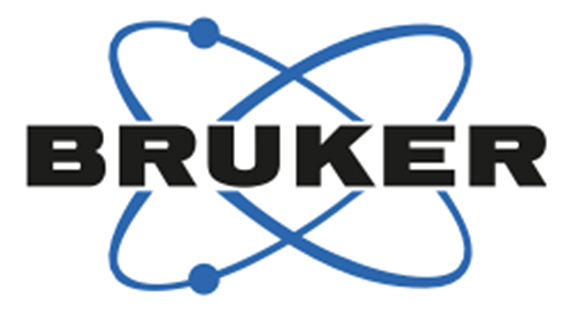

NanoString Technologies (WA, USA; https://nanostring.com), a provider of life science tools for discovery and translational research, has announced that substantially all of its assets will be acquired by Bruker Corporation (MA, USA; www.bruker.com/en.html), a global life science analytical instrument company, for approximately US$392.6 million in cash consideration, plus the assumption of certain liabilities [Citation32].
Following the closing, NanoString's business operations will no longer be the subject of a chapter 11 proceeding and will be owned by Bruker on a go-forward basis. The acquisition by Bruker validates NanoString's technology and ensures continuity of NanoString's business operations and product development initiatives for customers and substantially all of its employees.
4.2.2. Gingko & Modulus


Ginkgo Bioworks (MA, USA; www.ginkgobioworks.com), which is building the leading platform for cell programming and biosecurity, announced the acquisition of Modulus Therapeutics’ (WA, USA; www.modulustherapeutics.com) cell therapy platform assets, including their CAR and switch receptor libraries [Citation33]. Modulus Therapeutics is a cell engineering company focused on the design of next-generation cell therapies for autoimmune diseases. In contrast to legacy cell therapy design, the company uses a combinatorial approach to build and screen cell therapy components that work in concert with one another to yield novel cell behaviors.
Modulus has used its platform to develop and screen libraries of novel NK-specific and T-cell specific CAR and switch receptor designs, which enable improved control and performance of immune cell-based therapies. This technology has the potential to improve the safety and efficacy of cell therapies by allowing for more precise control over activation and targeting. Modulus’ CAR-NK and CAR-T components are designed to enhance proliferation and cytotoxicity, even in inhospitable cellular environments, providing a deeper and more durable response against target cells.
5. Capital market & finances
5.1. bluebird bio

bluebird bio (MA, USA; www.bluebirdbio.com) has received a notice on 24 April 2024 from The Nasdaq Stock Market LLC (NY, USA; www.nasdaq.com) stating that because the Company has not yet filed its Annual Report on Form 10-K for the year ended 31 December 2023, it is no longer in compliance with Nasdaq Listing Rule 5250(c)(1), which requires listed companies to timely file all required periodic financial reports with the Securities and Exchange Commission [Citation34]. The notice has no immediate effect on the listing or trading of the Company's common stock on the Nasdaq. Under Nasdaq rules, the Company has 60 calendar days from receipt of the notice, or until 24 June 2024, to submit a plan to regain compliance with the Rule.
At the same time, multiple law firms including Pomerantz LLP (NY, USA; www.pomlaw.com), Levi & Korsinski LLP (NY, USA: https://zlk.com), Faruqi & Faruci LLP (NY, USA; www.faruqilaw.com) and Bronstein, Gewirtz & Grossman LLP (NY, USA; https://bgandg.com), have notified investors that a class action lawsuit has been filed against bluebird bio and certain of its officers [Citation35–38]. This lawsuit seeks to recover damages against Defendants for alleged violations of the federal securities laws on behalf of all persons and entities that purchased or otherwise acquired Blue securities between April 24, 2023 and 8 December 2023, inclusive. According to the Complaint, Blue is a biotechnology company that researches, develops and commercializes gene therapies for severe genetic diseases. On April 24, 2023, Blue announced submission of its Biologics License Application (BLA) to the US FDA for lovotibeglogene autotemcel (lovo-cel) gene therapy in patients with sickle cell disease ages 12 and older who have a history of vaso-occlusive events. The BLA also included a request for priority review, which, if granted, would shorten the FDA's review of the application to six months from the time of filing, versus a standard review timeline of 10 months.
The Complaint alleges that throughout the Class Period the Company made materially false and/or misleading statements. Specifically, Blue created the false impression that:
| ▪ | it could obtain FDA approval for lovo-cel without any black box warnings for haematological malignancies; | ||||
| ▪ | it would be granted a priority review voucher by the FDA and in turn sell it in order to strengthen their financial position for the lovo-cel launch; | ||||
| ▪ | as a result, the Company had significantly overstated Lyfgenia's clinical and/or commercial prospects; and | ||||
| ▪ | therefore, the Company's public statements were materially false and misleading at all relevant times. | ||||
On 8 December 2023, according to the Complaint, Blue issued a press release announcing that it received approval from the FDA for its ex vivo gene therapy drug Lyfgenia for sickle cell disease. However, the FDA approval also came with a black box warning for haematological malignancies and requirement to monitor patients for cancer through complete blood counts at least every 6 months for at least 15 years. Further, the Company's anticipated priority review voucher was denied by the FDA.
On this news, the price of Blue's common stock declined, according to the Complaint, from a closing market price of US$4.81 per share on 7 December 2023, to US$2.86 per share on 8 December 2023.
5.2. Calidi
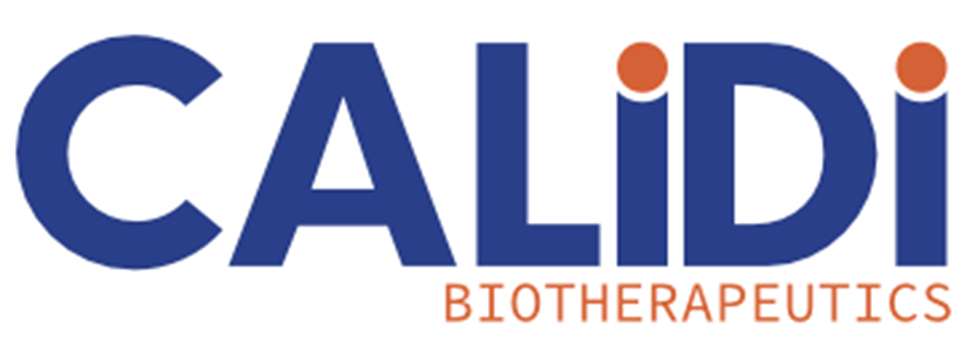
Calidi Biotherapeutics (CA, USA; www.calidibio.com), a clinical-stage biotechnology company developing a new generation of targeted immunotherapies, has closed its previously announced public offering of 15,197,500 shares at an effective combined price of US$0.40 per share and common warrants for aggregate gross proceeds of approximately US$6.1 million, before deducting placement agent fees and other offering expenses [Citation39].
5.3. CN Bio

CN Bio (UK; https://cn-bio.com), a provider of single- and multi-organ microphysiological systems, has raised a US$21 million investment in the first close of its Series B fundraising round [Citation40]. Investment will expand product development and scaling of the organization to meet increased demand for Organ-on-a-Chip solutions.
5.4. Obsidian

Obsidian Therapeutics (MA, USA; https://obsidiantx.com), a clinical-stage biotechnology company pioneering engineered cell and gene therapies, has closed a US$160.5 million Series C financing [Citation41]. Proceeds from the financing will advance Obsidian's lead engineered tumor-infiltrating lymphocyte (TIL) program, OBX-115, in its ongoing trials for patients with melanoma and non-small-cell lung cancer (NSCLC) [Citation42,Citation43].
Obsidian's lead investigational cytoTIL15™ program, OBX-115, is a novel engineered tumor-derived autologous T cell immunotherapy (tumor-infiltrating lymphocyte [TIL] cell therapy) armored with pharmacologically regulatable membrane-bound IL15 (mbIL15). OBX-115 has the potential to become a meaningful therapeutic option for patients with advanced or metastatic melanoma and other solid tumors by leveraging the expected benefits of mbIL15 and Obsidian's proprietary, differentiated manufacturing process to enhance persistence, antitumor activity and clinical safety of TIL cell therapy.
Financial disclosure
The author, D Ilic, has received an honorarium from Taylor & Francis for the contribution of this work. The authors have no other relevant affiliations or financial involvement with any organization or entity with a financial interest in or financial conflict with the subject matter or materials discussed in the manuscript apart from those disclosed.
Writing disclosure
No writing assistance was utilized in the production of this manuscript.
Competing interests disclosure
The authors have no competing interests or relevant affiliations with any organization or entity with the subject matter or materials discussed in the manuscript. This includes employment, consultancies, honoraria, stock ownership or options, expert testimony, grants or patents received or pending, or royalties.
References
- Vertex Pharmaceuticals. Vertex and TreeFrog Therapeutics Announce Licensing Agreement and Collaboration to Optimize Production of Vertex's Cell Therapies for Type I Diabetes. 2024. https://investors.vrtx.com/node/32011/pdf
- Bristol Myers Squibb. Bristol Myers Squibb and Cellares Announce a $380M Worldwide Capacity Reservation and Supply Agreement for the Manufacture of CAR T Cell Therapies to Bring the Promise of Cell Therapy to More Patients, Faster. 2024. https://news.bms.com/news/corporate-financial/2024/Bristol-Myers-Squibb-and-Cellares-Announce-a-380M-Worldwide-Capacity-Reservation-and-Supply-Agreement-for-the-Manufacture-of-CAR-T-Cell-Therapies-to-Bring-the-Promise-of-Cell-Therapy-to-More-Patients-Faster/default.aspx
- Ferring Pharmaceuticals. Ferring Pharmaceuticals and SK Pharmteco Enter into Commercial Gene Therapy Manufacturing Deal. 2024. http://www.ferring.com/ferring-pharmaceuticals-and-sk-pharmteco-enter-into-commercial-gene-therapy-manufacturing-deal/
- NCT02773849. ADSTILADRIN (=INSTILADRIN) in Patients With High Grade, Bacillus Calmette-Guerin (BCG) Unresponsive Non-Muscle Invasive Bladder Cancer (NMIBC). 2024. https://clinicaltrials.gov/study/NCT02773849
- Kincell Bio. Expanding our capacity with late-phase facility in Research Triangle Park. 2024. https://kincellbio.com/imugene-and-kincell-bio-announce-strategic-manufacturing-and-process-development-partnership/
- PRNewswire. Panasonic and Shinobi Therapeutics Partner to Develop Efficient and Cost-Effective iPS Cell Therapy Manufacturing Technology. 2024. http://www.prnewswire.com/news-releases/panasonic-and-shinobi-therapeutics-partner-to-develop-efficient-and-cost-effective-ips-cell-therapy-manufacturing-technology-302118777.html
- Cellares. Cellares Launches Cell Q, the World's First Automated cGMP QC Workcell for Cell Therapies, to Resolve Manual QC Processing Bottleneck and Extend IDMO Capabilities from Manufacturing Through Quality Control. 2024. http://www.cellares.com/news/cellares-launches-cell-q-the-worlds-first-automated-cgmp-qc-workcell-for-cell-therapies-to-resolve-manual-qc-processing-bottleneck-and-extend-idmo-capabilities-from-manufacturing-through-qu/
- Businesswire. Profluent Successfully Edits Human Genome with OpenCRISPR-1, the World's First AI-Created and Open-Source Gene Editor. 2024. http://www.businesswire.com/news/home/20240422399482/en/
- Businesswire. Thermo Fisher Scientific Introduces Animal Origin-Free Formulation to Support Scaling of Cell Therapy Manufacturing. 2024. http://www.businesswire.com/news/home/20240411707187/en/
- Businesswire. Walgreens Launches Gene and Cell Services as Part of Newly Integrated Walgreens Specialty Pharmacy Business. 2024. http://www.businesswire.com/news/home/20240424326589/en/
- Aspen Neuroscience. Aspen Neuroscience Announces First Patient Dosed in First-in-Human Phase I/2a Clinical Trial of Autologous Neuronal Cell Replacement Therapy for Parkinson's Disease. 2024.
- NCT06344026. Phase I/2a Study of ANPD001 in Parkinson Disease (ASPIRO). https://clinicaltrials.gov/study/NCT06344026
- Artiva Biotherapeutics. Artiva Biotherapeutics Announces First Patient Dosed in Phase I Trial of AlloNK® Cell Therapy Candidate in Lupus Nephritis. 2024. http://www.artivabio.com/artiva-biotherapeutics-announces-first-patient-dosed-in-phase-1-trial-of-allonk-cell-therapy-candidate-in-lupus-nephritis/
- NCT06265220. AB-101 in Combination With B-Cell Depleting mAb in Patients Who Failed Treatment for Class III or IV Lupus Nephritis. 2024. https://clinicaltrials.gov/study/NCT06265220
- Aurion Biotech. Aurion Biotech Announces Completion of Enrollment In Phase I / 2 Clinical Trial. 2024. https://aurionbiotech.com/aurion-biotech-announces-completion-of-enrollment-in-phase-1-2-clinical-trial/
- NCT06041256. A Phase I/2 Study of AURN001 in Subjects with Corneal Edema Secondary to Corneal Endothelial Dysfunction (ABA-1) (CLARA). 2024. https://clinicaltrials.gov/study/NCT06041256
- LyGenesis. LyGenesis Announces First Patient Dosed in its Phase IIa Clinical Trial of a First-in-Class Regenerative Cell Therapy for Patients with End-Stage Liver Disease. 2024. http://www.lygenesis.com/media/press-releases/lygenesis-announces-first-patient-dosed-in-its-phase-2a-clinical-trial-of-a-first-in-class-regenerative-cell-therapy-for-patients-with-end-stage-liver-disease
- Kozlov M. ‘Mini liver’ will grow in person'sown lymph node in bold new trial. Nature [Online ahead of print]. 2024. doi:10.1038/d41586-024-00975-z
- NCT04496479. Allogenic Hepatocyte Transplantation Into Periduodenal Lymph Nodes. 2024. https://clinicaltrials.gov/study/NCT04496479
- Autolus Therapeutics. Autolus Therapeutics announces acceptance of Marketing Authorization Application (MAA) by the European Medicines Agency (EMA) for obecabtagene autoleucel (obe-cel) for Patients with Relapsed/refractory (r/r) Adult B-Cell Acute Lymphoblastic Leukemia (B-ALL). 2024. https://autolus.gcs-web.com/node/9866/pdf
- NCT04404660. A Study of CD19 Targeted CAR T Cell Therapy in Adult Patients With Relapsed or Refractory B Cell Acute Lymphoblastic Leukaemia (ALL). 2024. https://clinicaltrials.gov/study/NCT04404660
- Bristol Myers Squibb. U.S. FDA Approves Bristol Myers Squibb and 2seventy bio's Abecma for Triple-Class Exposed Relapsed or Refractory Multiple Myeloma After Two Prior Lines of Therapy. 2024. https://news.bms.com/news/corporate-financial/2024/U.S.-FDA-Approves-Bristol-Myers-Squibb-and-2seventy-bios-Abecma-for-Triple-Class-Exposed-Relapsed-or-Refractory-Multiple-Myeloma-After-Two-Prior-Lines-of-Therapy/default.aspx
- Businesswire. SHAREHOLDER ALERT: Pomerantz Law Firm Investigates Claims on Behalf of Investors of Bristol-Myers Squibb Company - BMY. 2024. http://www.prnewswire.com/news-releases/shareholder-alert-pomerantz-law-firm-investigates-claims-on-behalf-of-investors-of-bristol-myers-squibb-company—bmy-302093606.html
- IASO Bio. IASO Bio Announces U.S. FDA Approval of Investigational New Drug Application for BCMA CAR-T Equecabtagene Autoleucel for Generalized Myasthenia Gravis. 2024. http://www.prnewswire.com/news-releases/iaso-bio-announces-us-fda-approval-of-investigational-new-drug–application-for-bcma-car-t-equecabtagene-autoleucel-for-generalized-myasthenia-gravis-302108912.html
- PRNewswire. Ingenium Therapeutics Novel NK Cell Therapy Receives Orphan Drug Designation from FDA. 2024. http://www.prnewswire.com/news-releases/ingenium-therapeutics-novel-nk-cell-therapy-receives-orphan-drug-designation-from-fda-302131237.html
- Kelyniam Global. NEOS Cranial LOOP™ Receives FDA Clearance for CustomizedBone™ Use. 2024. https://kelyniam.com/neos-cranial-loop-receives-fda-clearance-for-customizedbone-use/
- Legend Biotech. Legend Biotech's CARVYKTI® (ciltacabtagene autoleucel) Becomes the First and Only BCMA-Targeted CAR-T Cell Therapy Approved by the FDA for Second-Line Treatment of Multiple Myeloma. 2024. https://investors.legendbiotech.com/news-releases/news-release-details/legend-biotechs-carvyktir-ciltacabtagene-autoleucel-becomes
- Legend Biotech. CARVYKTI® (ciltacabtagene autoleucel) Approved by the European Commission for Second-line Treatment of Patients with Relapsed and Refractory Multiple Myeloma. 2024. https://investors.legendbiotech.com/news-releases/news-release-details/carvyktir-ciltacabtagene-autoleucel-approved-european-commission
- Replay. Replay and MD Anderson announce FDA clearance of IND application for first-in-class PRAME-targeted T-Cell Receptor Natural Killer (TCR-NK) cell therapy for hematological malignancies. 2024. https://replay.bio/news/replay-and-md-anderson-announce-fda-clearance-of-ind-application-for-first
- Scorpio Labs. Scopio Labs Receives Groundbreaking FDA Clearance for First-Ever Digital Bone Marrow Aspirate Application. 2024. https://scopiolabs.com/news/scopio-labs-receives-groundbreaking-fda-clearance-for-first-ever-digital-bone-marrow-aspirate-application/
- NanoString Technologies. NanoString Technologies to Be Acquired by Bruker Corporation. 2024. https://investors.nanostring.com/news/news-details/2024/NanoString-Technologies-to-Be-Acquired-by-Bruker-Corporation/default.aspx
- Gingko Bioworks. Ginkgo Bioworks Acquires Modulus Therapeutics’ Cell Therapy Assets to Strengthen Next-Gen CAR Designs. 2024. https://investors.ginkgobioworks.com/news/news-details/2024/Ginkgo-Bioworks-Acquires-Modulus-Therapeutics-Cell-Therapy-Assets-to-Strengthen-Next-Gen-CAR-Designs/default.aspx
- bluebird bio. bluebird bio Announces Receipt of Expected Notice from Nasdaq. 2024. https://investor.bluebirdbio.com/news-releases/news-release-details/bluebird-bio-announces-receipt-expected-notice-nasdaq
- PRNewswire. SHAREHOLDER ALERT: Pomerantz Law Firm Announces the Filing of a Class Action Against bluebird bio, Inc. – BLUE. 2024. http://www.prnewswire.com/news-releases/shareholder-alert-pomerantz-law-firm-announces-the-filing-of-a-class-action-against-bluebird-bio-inc—blue-302153075.html
- PRNewswire. Levi & Korsinsky Reminds Shareholders of a Lead Plaintiff Deadline of May 28, 2024 in bluebird bio Lawsuit – BLUE. 2024. http://www.prnewswire.com/news-releases/levi–korsinsky-reminds-shareholders-of-a-lead-plaintiff-deadline-of-may-28-2024-in-bluebird-bio-lawsuit–blue-302153502.html
- PRNewswire. ONGOING DEADLINE ALERT: Faruqi & Faruqi, LLP Investigates Claims on Behalf of Investors of Blue. 2024. http://www.prnewswire.com/news-releases/ongoing-deadline-alert-faruqi–faruqi-llp-investigates-claims-on-behalf-of-investors-of-blue-302154672.html
- PRNewswire. BLUE INVESTOR ALERT: Bronstein, Gewirtz & Grossman LLC Announces that bluebird bio, Inc. Investors with Substantial Losses Have Opportunity to Lead Class Action Lawsuit!. 2024. http://www.prnewswire.com/news-releases/blue-investor-alert-bronstein-gewirtz–grossman-llc-announces-that-bluebird-bio-inc-investors-with-substantial-losses-have-opportunity-to-lead-class-action-lawsuit-302104741.html
- Calidi Biotherapeutics. Calidi Biotherapeutics, Inc. Announces Closing of $6.1 Million Public Offering. 2024. http://www.calidibio.com/newsroom/post/calidi-biotherapeutics-inc-announces-closing-of-6-1-million-public-offering
- CN Bio. CN Bio raises $21 million USD in first close of Series B investment round. 2024. https://cn-bio.com/cn-bio-raises-21-million-investment/
- Obsidian Therapeutics. Obsidian Therapeutics Announces Oversubscribed $160.5 Million Series C Financing to Drive OBX-115 Clinical Development. 2024. https://obsidiantx.com/news-releases/obsidian-therapeutics-announces-oversubscribed-160-5-million-series-c-financing-to-drive-obx-115-clinical-development/
- NCT05470283. Phase I, Open-Label, Study of Tumor Infiltrating Lymphocytes Engineered With Membrane Bound IL15 Plus Acetazolamide in Adult Patients With Metastatic Melanoma. 2024. https://clinicaltrials.gov/study/NCT05470283
- NCT06060613. Safety and Efficacy of OBX-115 in Advanced Solid Tumors. 2024. https://clinicaltrials.gov/study/NCT06060613
